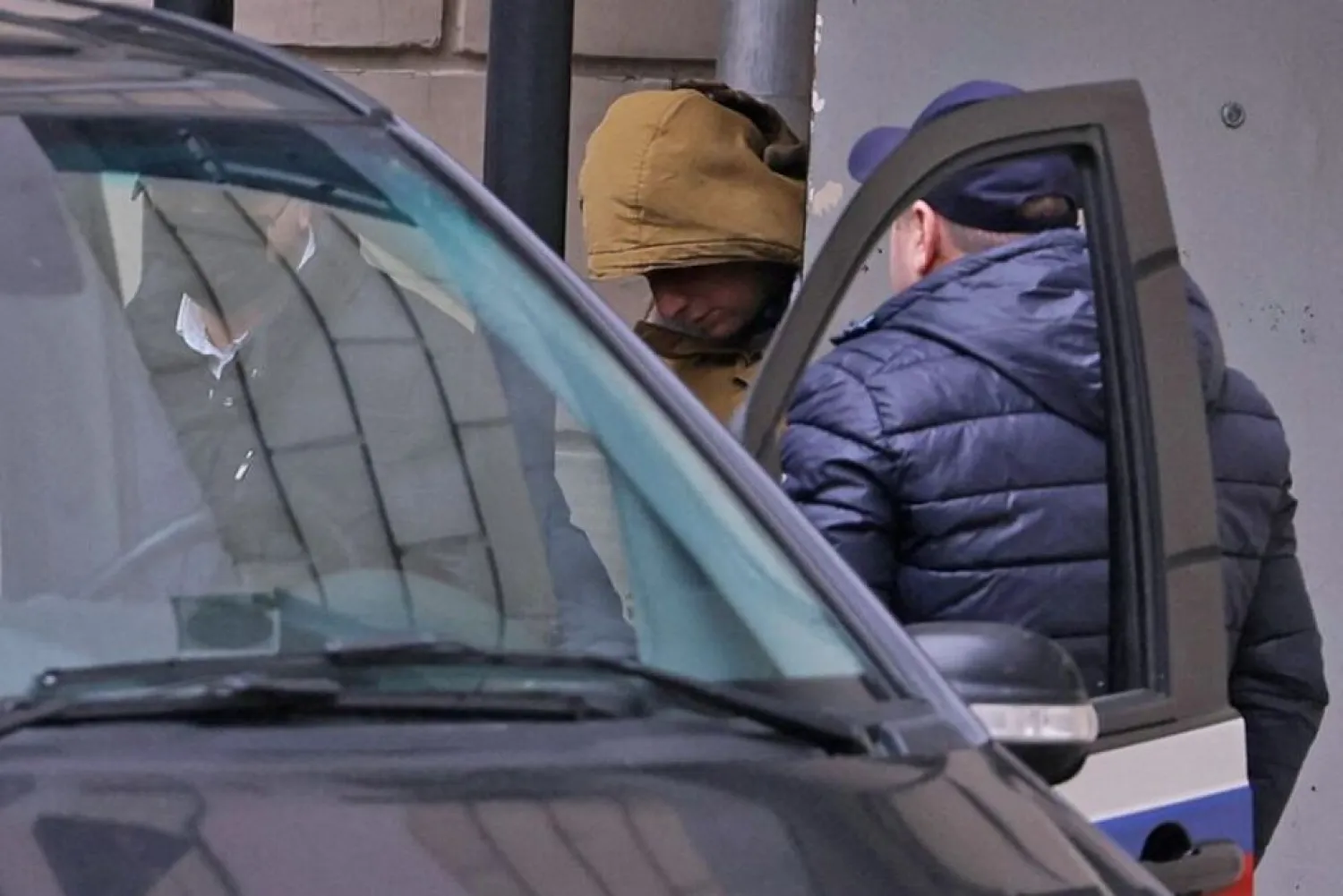Russia has charged an American journalist with spying while Finland moved closer to becoming a NATO member, deepening tensions between Moscow and the West as the war in Ukraine reached its 400th day on Friday.
Ukrainian President Volodymyr Zelenskiy spoke in his Thursday evening video address of the "tremendous path" his country had taken in 400 days since Russia's invasion on Feb. 24, 2022, Reuters said.
"Ukraine will win at the front ... We will not leave a single trace of Russia on our land, and we will not leave any enemy unpunished either. We are preparing news about this," he said. He did not give details, but the Ukrainian military has been planning a counteroffensive.
Earlier on Thursday, the Wall Street Journal denied espionage allegations against its reporter, Evan Gershkovich, and demanded his immediate release. The Kremlin said he had been "caught red-handed" but presented no documentary or video evidence.
The White House condemned Russia's action and urged US citizens living or traveling in Russia to leave immediately.
"These espionage charges are ridiculous. The targeting of American citizens by the Russian government is unacceptable," White House Press Secretary Karine Jean-Pierre said at a news briefing.
The Russian FSB security service said it arrested Gershkovich, a 31-year-old who has worked in Russia as a journalist for six years, in the Urals industrial city of Yekaterinburg, "suspected of spying in the interests of the American government".
He was brought to Moscow, where a court at a closed hearing ordered him held in pre-trial detention until May 29. Espionage under Russian law can be punishable by up to 20 years in jail.
Western political analysts speculated Moscow could seek to barter Gershkovich in a prisoner swap with Washington or use him as diplomatic leverage in some other way.
'MORE NATO, NOT LESS'
Separately, Türkiye’s parliament approved a bill on Thursday to allow Finland to join NATO. The Turkish parliament was the last among the 30 members of the Western defense alliance to ratify Finland's membership after Hungary's legislature approved a similar bill on Monday.
Sweden has also sought NATO membership as a response to Russia's invasion of Ukraine. One of Russia's main justifications for the invasion was to prevent the Western military alliance from expanding. The alliance and its members have supplied Kyiv with military and economic aid.
"Soon both Finland and Sweden will be members, meaning that President Putin is getting the exact opposite of what he wanted," NATO Secretary General Jens Stoltenberg told Fox News. "He wanted less NATO. He is getting more NATO."
Ukraine said Russian forces pressed on with their assault in the east, in particular on Bakhmut and nearby towns as well as on the town of Avdiivka, about 60 km (37 miles) to the southwest of Bakhmut.
Bakhmut has been the site of the bloodiest infantry battle in Europe since World War Two, with Russian forces seeking their first victory since mid-2022.
"Our defenses are holding the city and repelling numerous enemy attacks," Ukraine's military said on Facebook on Thursday evening.
Ukrainian military analyst and journalist, Andriy Tsaplienko, interviewed on Ukrainian NV Radio, said Russian forces were trying to repeat in Avdiivka what happened in Bakhmut.
"The city is under constant, daily shelling. They understand that they cannot simply capture it and instead are starting to destroy Avdiivka as much as possible," Tsaplienko said.
Reuters could not independently confirm the battlefield reports.
The Ukrainian military had said a day earlier that Russian fighters were having some success in Bakhmut. Evhen Dikyi, a Ukrainian military analyst interviewed on Ukrainian NV Radio, said Russian forces controlled more than half the city.
"I can tell you that Bakhmut is holding firm. But there is heavy fighting in the city and it is getting closer to the city center," he said.
"If Russian forces are reported to have made 'some progress' it is probably because they have crossed the Bakhmutka River. They have come wave upon wave and we are talking about a few hundred meters," Dikyi added.
A month ago, the Ukrainian military seemed likely to abandon Bakhmut but has since decided to stay and fight for it, hoping to exhaust and deplete Russia's attacking force.
Russia's invasion has destroyed Ukrainian cities and set millions of civilians to flight. Tens of thousands of Ukrainian civilians and soldiers on both sides are believed to have died.









